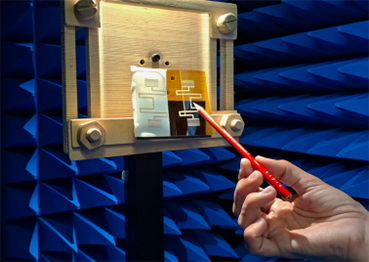

Guaranteeing the preservation of the cold chain is of vital importance in the food and pharmaceutical sectors. The cold chain is a real challenge because it involves different stages such as logistics, transport and preservation. None of these links must break the chain to ensure the quality of a product, from production to use.
Today, the existing solutions for determining whether the cold chain has been broken are either visual (opening a container to collect data) or electronic. This is a costly process, which, what's additionally noted, requires a battery.
The aim of the Interreg WIBATTS project, supported by the Office de promotion des industries et des technologies (OPI), is to develop a system for detecting breaks in the cold chain in transport.
The aim is to develop a UHF RFID tag using polymers that irreversibly change state (dimension or permittivity) once the cold chain has been broken.
The medical sector, in particular the conservation of vaccines and medicines, is the project's priority area of application. The project will benefit from the active support of the Pharmacy Department of the University Hospitals of Geneva (HUG), which has agreed to carry out the initial tests on the prototypes during the development phase.
Project partner(s)
Project leader - team
Delphine Bechevet
(HEPIA)
